Soil to Silk with Madhulika Choudhary
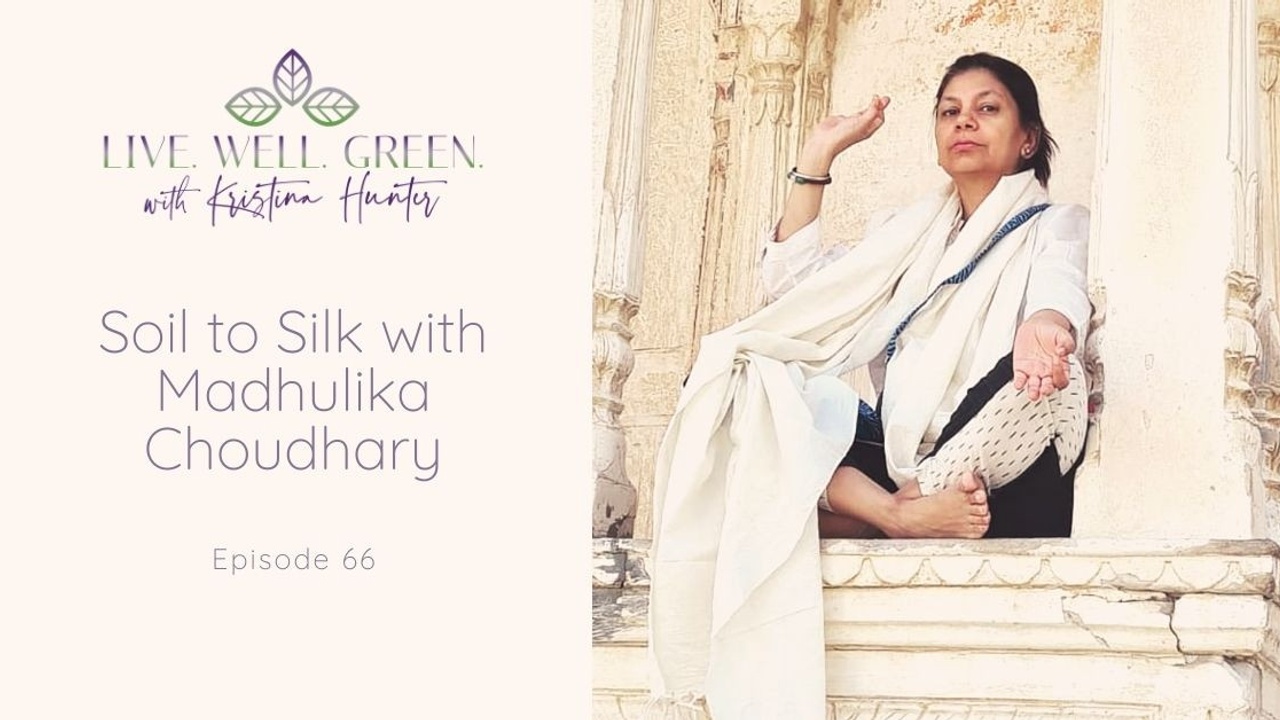
I had the pleasure of chatting with Madhulika Choudhary who has become a slow silk producer in rural India after inheriting a plot of land from her father. She had fond memories of spending time in the village where her family is from, with its local pond full of fish and children playing.
But when she returned 20 years later, the pond was no longer thriving. Western agricultural practices had taken over, including the pressure to use chemical pesticides and fertilizers. These new advances left the producer with high input costs as they produce non-traditional crops, but it also meant the loss of fish and wildlife as chemicals ran off into the nearby waterway.
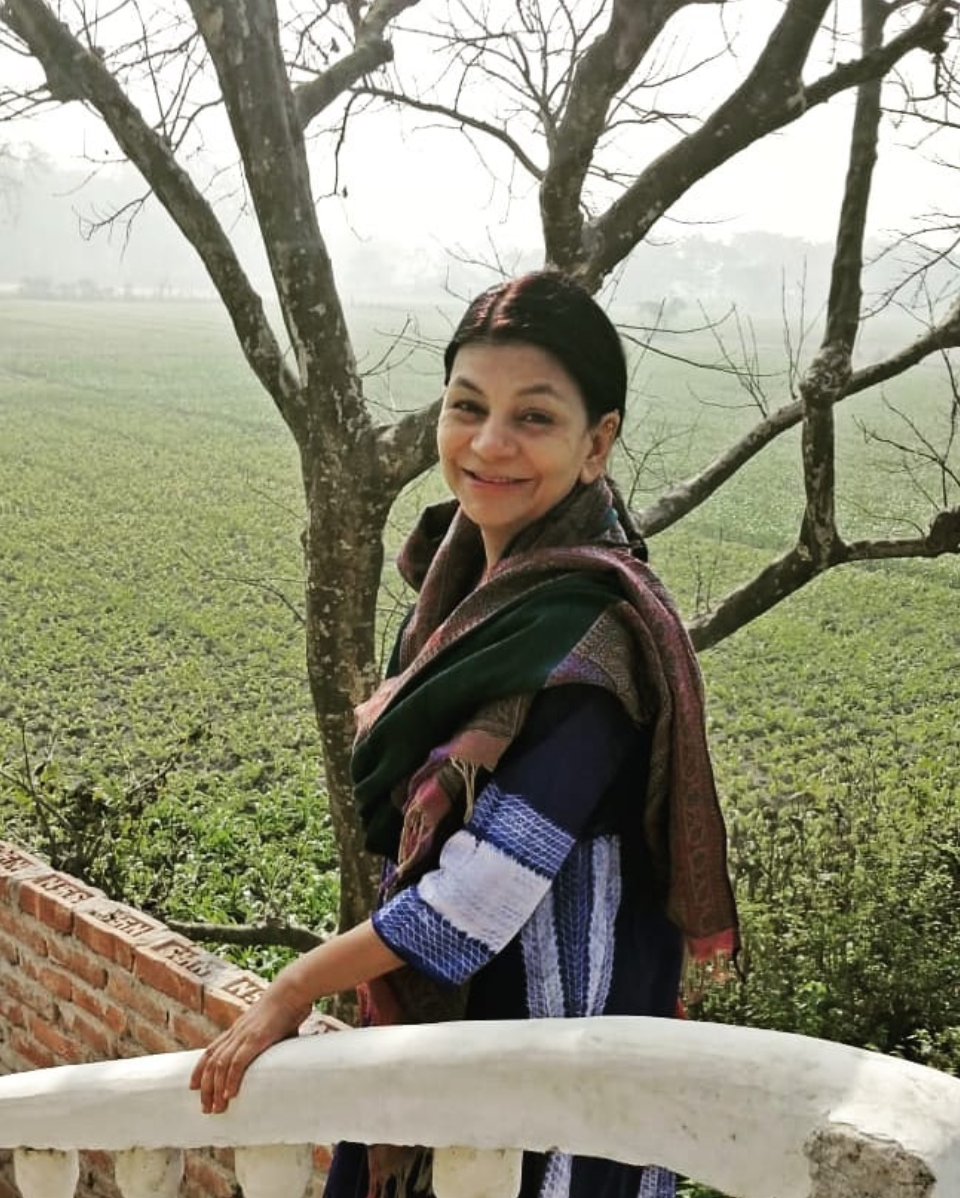
The mulberry crop to be fed to the worms is organically grown, Madhulika Choudhary.
Madhulika had plenty of experience working in underserved communities and knew a little about the textile industry, so she took the opportunity to bring a traditional practice of Sericulture, or silk farming to her family's historical village. Although the practice is 4,000 years old and was still being done just 100 km away, there were many barriers to reintroducing it to her village.
"Societies don't change if you don't push."
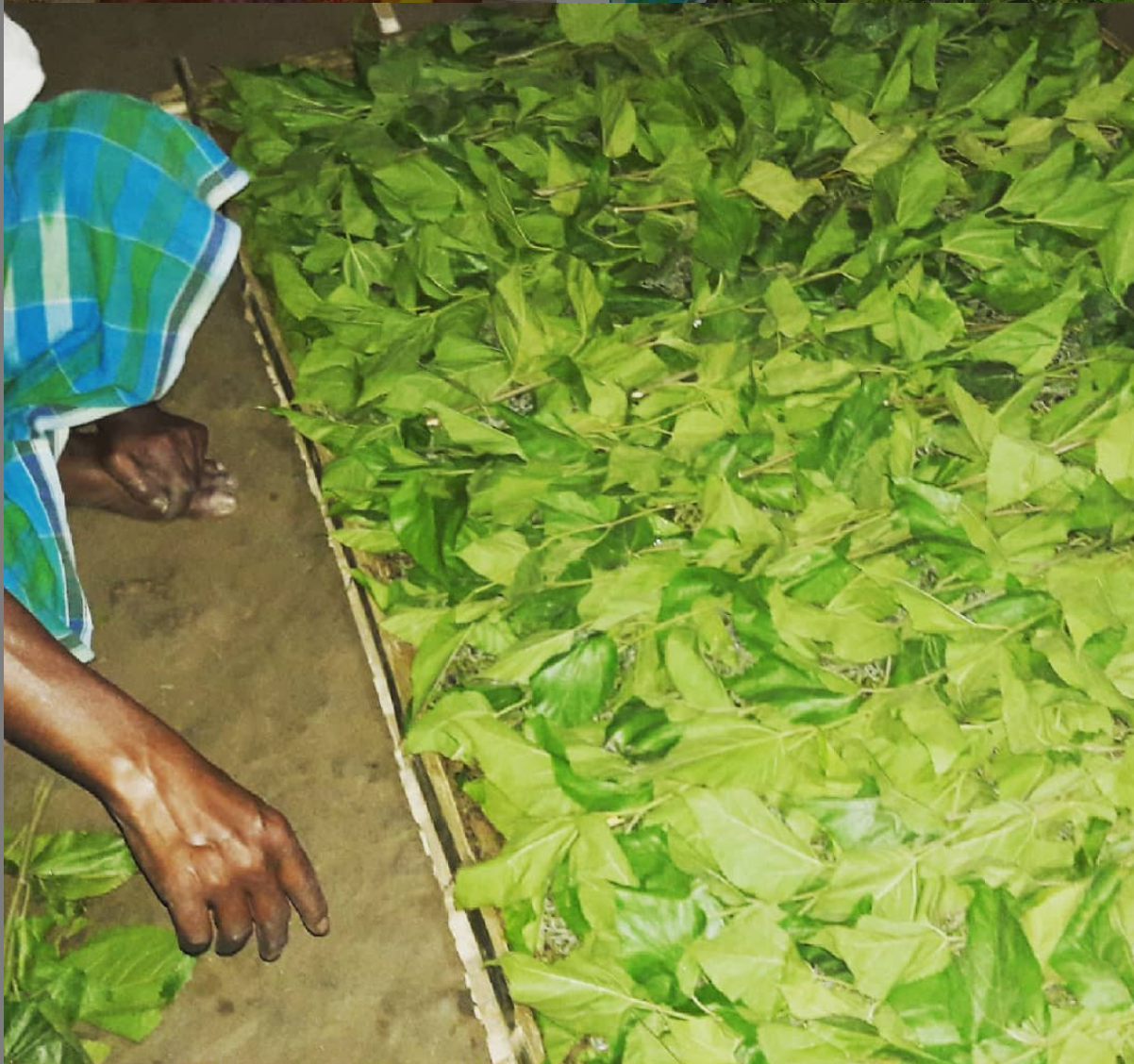
Women are employed to care for the developing worms fed mulberry.
But the wins of creating long-term employment, especially for older women in the village was important to her, as well as the desire to grow crops without the use of chemical inputs. So, she began to plant mulberry, the food of the silkworm, and learned how to turn this ancient practice into a new opportunity for the rural area.
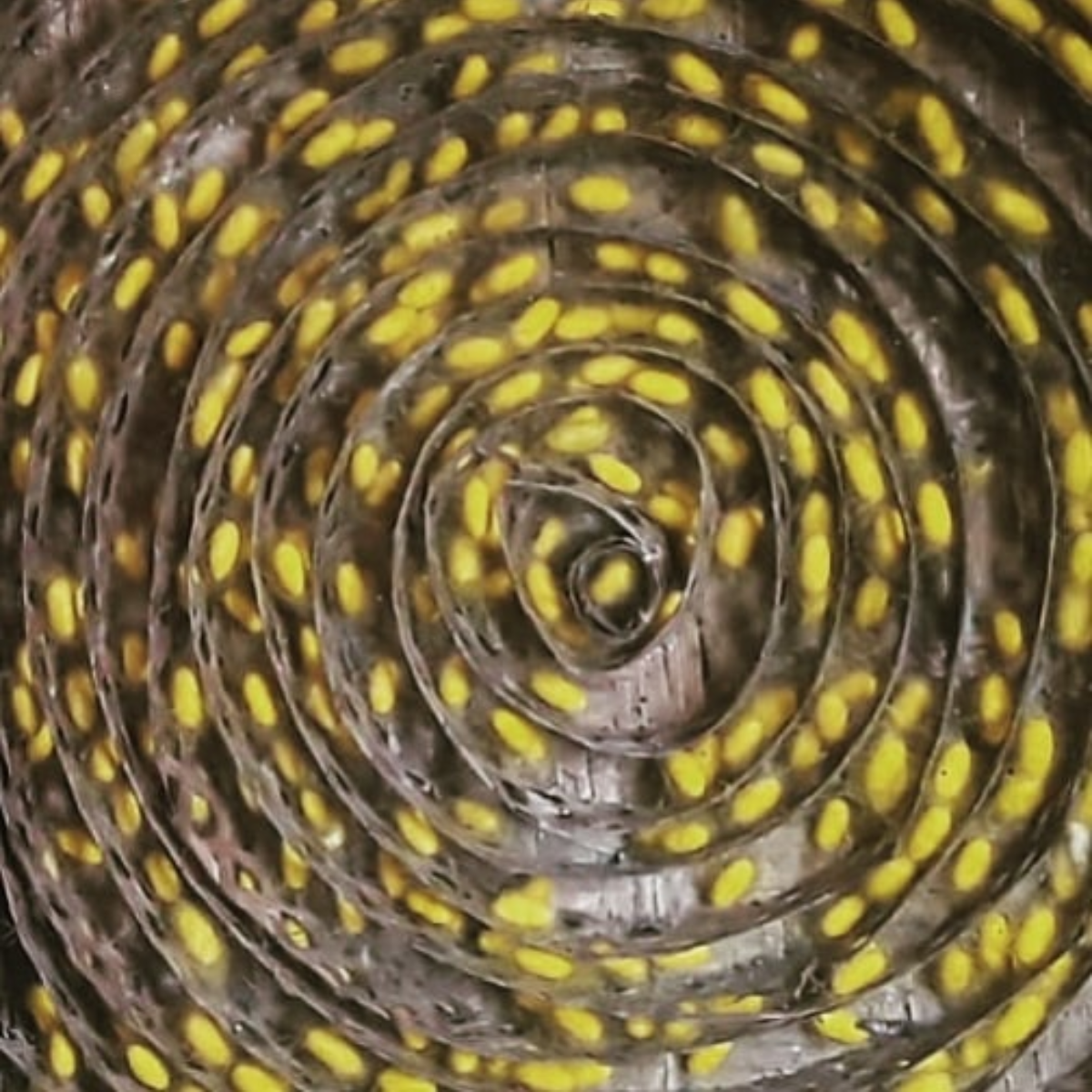
Silkworm cocoons in a traditional spiral montage.
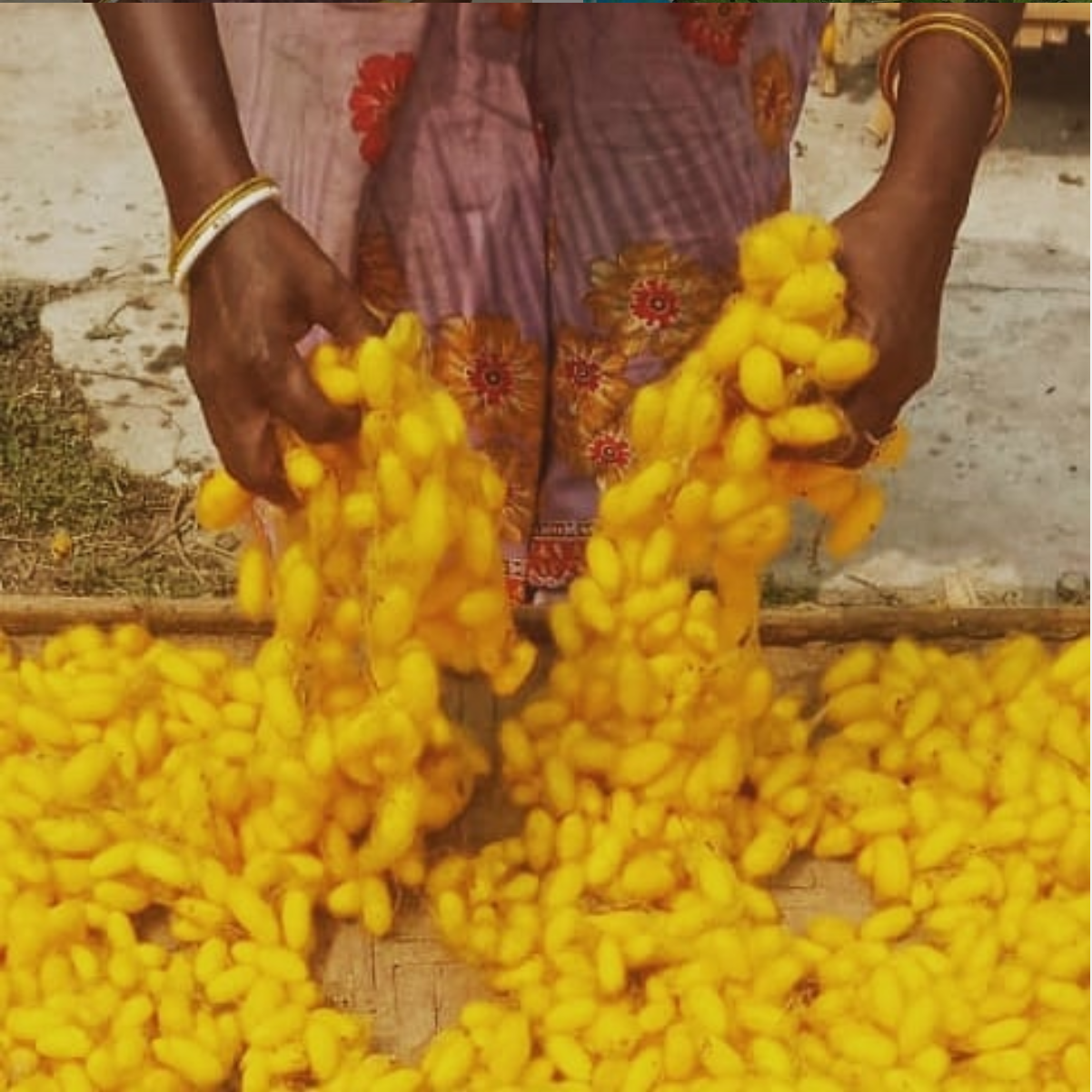
Fully developed cocoons dry in the sun.
She guides us through the process of what it means to be a soil to silk producer of slow silk in rural India, and how the practice can benefit an entire community.
You can see her beautiful hand-spun silk fabric for sale on Ikotori.com.
Madhulika's fabric is also available through Maiwa.com an online store, textile school and supporter of slow clothing.
As they state on their website, "We have been making slow clothes for close to thirty years. For us, this means opening up the process to include hand spinners, hand weavers, natural dyers, block printers, embroiderers ... all the artisans who are left behind in the rush to mass produce clothing. Certainly there is more room for creativity when working slowly, but there is also an opportunity to support an ecosystem of production. Such an ecosystem looks to create meaningful work on a human scale."
Have a look at this company's stunning story, founded in 1986 by Charllotte Kwon, with a love of textiles and a deep desire to work with others to support the preservation of craft, through its artisans, especially those in India. The story is as rich as the naturally dyed and embroidered textiles that they bring to the world.
Maiwa: A Quiet Manifesto Revisited
Stay connected with news and updates!
Join my mailing list to receive the latest news and updates. Your information will not be shared.

